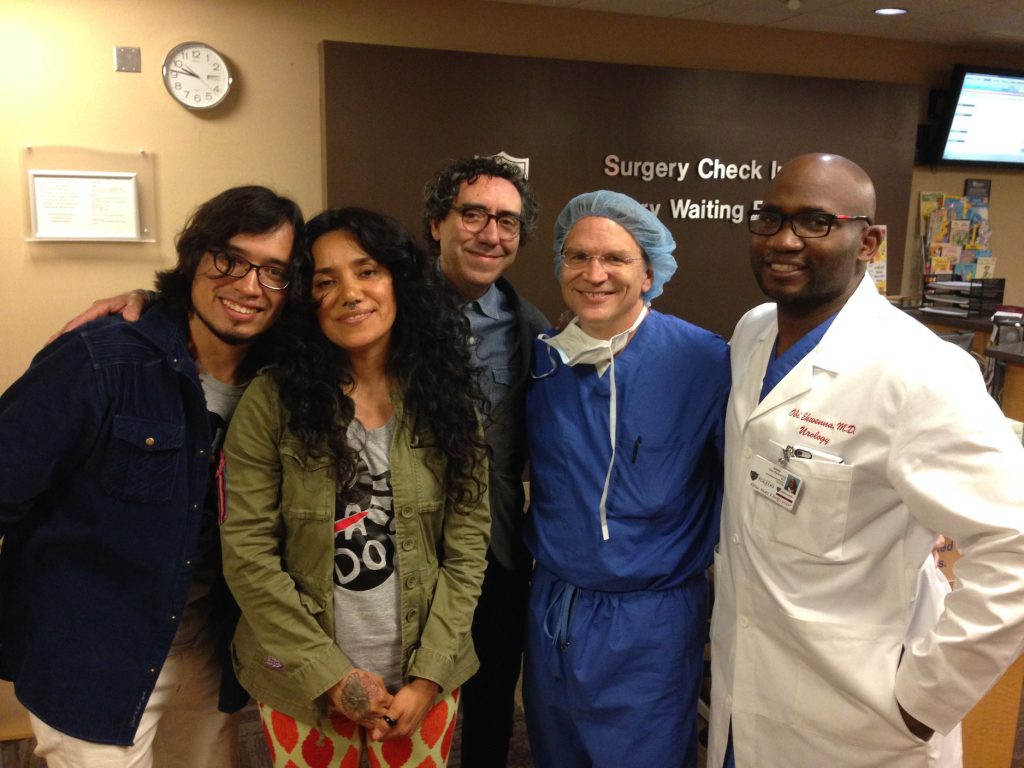TOLEDO, Ohio, Oct. 4, 2021 /PRNewswire/ — Doctors and donors from Israel and the United Arab Emirates have completed a historic series of kidney transplants that saved the lives of three women.
The procedures, the first ever between Israel and the UAE, are the result of a collaboration between the Alliance for Paired Kidney Donation (APKD), a global leader in kidney donation, the UAE Organ Donation and Transplant Committee and the Israel Center for Transplantation.
The complicated exchange involved three kidney patients, two from Israel and one from the UAE, in a “pay-it-forward” series of transplants. Each patient had a willing, living donor whose kidney was not a match for them, but did match another patient. So they helped each other in a three-way exchange that worked like this: An Abu Dhabi-based donor gave a kidney to a patient from Israel whose husband did not match. The husband donated one of his kidneys to a patient at another hospital in Israel, and in turn that patient’s incompatible donor, her daughter, donated her kidney, where it was transplanted into the original UAE donor’s mother.
The transplants involved six surgeries and three hospitals. Kidneys were shipped between Abu Dhabi and Tel Aviv via private jet.
As a result of this “Kidney Diplomacy,” which crossed religious and ideological lines, three lives were saved, valuable relationships were formed and new transplantation regulations were developed. Nations around the world often prohibit transplants among unrelated people in an outdated effort to prevent the black market sale of organs, rules that can block life-saving paired exchanges. Even the U.S. and Canada cannot exchange kidneys across their common border.
“This exchange demonstrates how we can harness our differences for mutual benefit,” said Michael Rees, MD, PhD, chief executive officer of APKD and one of the world’s foremost authorities on paired kidney exchange. “APKD was created to lead innovation in the living donor kidney space, and we hope to connect the world to save more lives through kidney transplantation.”
Kidney disease is a leading cause of death around the world. While dialysis helps, kidney transplantation is the only cure once the kidney has failed. Kidney failure patients often have living donors willing to help, only to learn the patient and donor are incompatible, ruling out the possibility of a transplant.
This was the case for each of the patients involved, two women with daughters who did not match and one woman whose husband was not a match. Kidney exchanges make transplantation possible, because they allow incompatible pairs to exchange their donor’s kidney, resulting in each patient in need receiving a compatible kidney.
In addition to working with governments, health-care providers and payers around the world to set up systems and processes that support paired kidney donation among living donors, APKD provides an industry-leading global kidney registry for donors powered by the Nobel prize-winning algorithm of Dr. Alvin Roth of Stanford University. Itai Ashlagi, Stanford associate professor, is now helping APKD improve its algorithms, and his work helped make the Israel-UAE living donor exchanges possible.
There are 20,000 kidney transplants a year in the United States, with 14,000 of the kidneys (70%) coming from deceased donors and 6,000 from living donors.
“We need a global solution to the global problem of kidney disease,” said Dr. Roth. “Kidney exchange across borders creates a larger, more diverse pool of patients and donors resulting in more compatible matches.”
About the Alliance for Paired Kidney Donation
The Alliance for Paired Kidney Donation (APKD), established in 2006, is a 501c3 with global reach that manages an industry-leading kidney registry powered by a Nobel Prize-winning algorithm. APKD revolutionized kidney donation by performing the world’s first non-simultaneous altruistic donor chain, and the first international chain. APKD’s commitment to innovation, research, education, technology and generosity allows it to fulfill its mission of saving lives by securing a living donor kidney transplant for every patient who needs one.
For additional photos and videos, please visit the following link: https://drive.google.com/drive/folders/1–shQRMepL39CbI36SFfiVRaqdUmVIVh
SOURCE Alliance for Paired Kidney Donation


